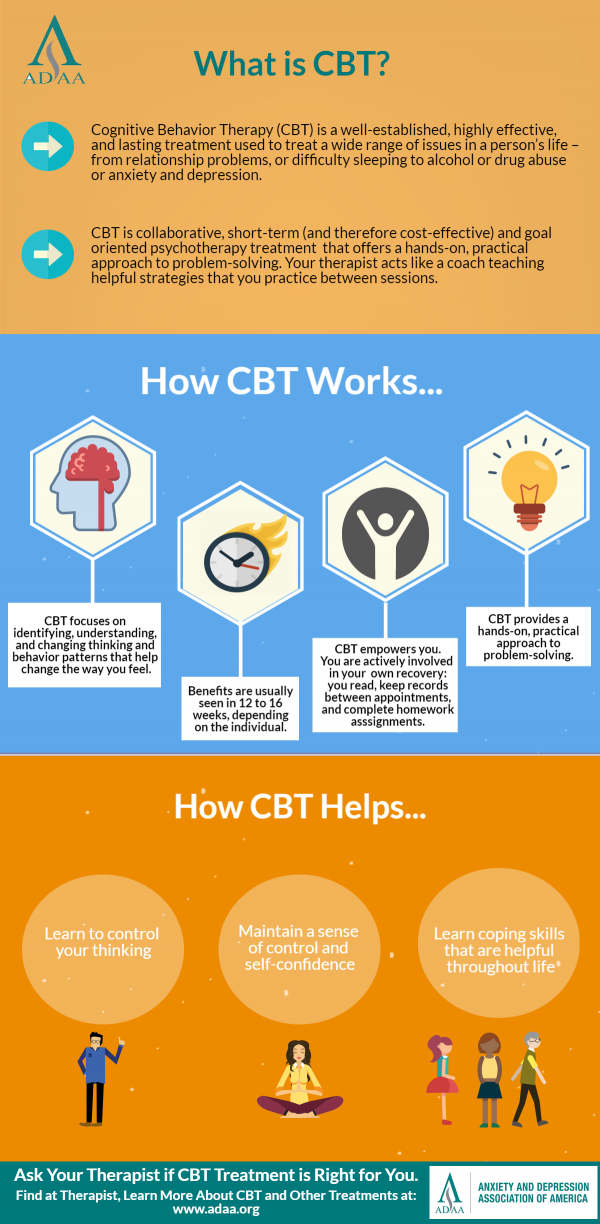Cognitive behavioral therapy (CBT) is a form of psychotherapy that focuses on how your thoughts, beliefs and attitudes affect your feelings and behavior. CBT aims to teach you effective coping strategies for dealing with different problems throughout life. CBT can help you make sense of overwhelming problems by breaking them down into smaller parts.
One of the key tenets of CBT is that distorted thinking leads to distress and problematic behaviors, whereas thinking realistically with less negativity allows individuals to respond to challenging life circumstances in an effective way.
Research shows this technique is an effective therapy for not only depression and panic disorder, but many illnesses and dysfunctional behaviors.
Additionally, this therapy involves clear identification of the problem, establishing attainable goals, emphatic communication, frequent feedback, reality checks, homework assignments, and teaching individuals to use learned tools to promote positive behavioral change and growth. From Source.
Call us at 469-714-0006 or email us at info@exulthealthcare.com
What’s the Difference Between CBT and DBT?
Advances in medicine and healthcare, even in the last 50 years, are far too numerous to name. People live longer, healthier lives than at any time in modern history. Treatment for mental health disorders, as well as substance abuse and addiction, have also benefitted from these advances.
Cognitive Behavioral Therapy and Dialectical Behavior Therapy are evidence-based approaches for treating addiction and mental health issues, such as anxiety, depression or borderline personality disorder.
The National Alliance on Mental Illness estimates 37 percent of people battling alcoholism and 53 percent of individuals coping with drug addiction suffer from at least one serious mental illness.
CBT and DBT have shown to be effective in the treatment of both addiction and mental health issues. So, what’s the difference and how do they work?
